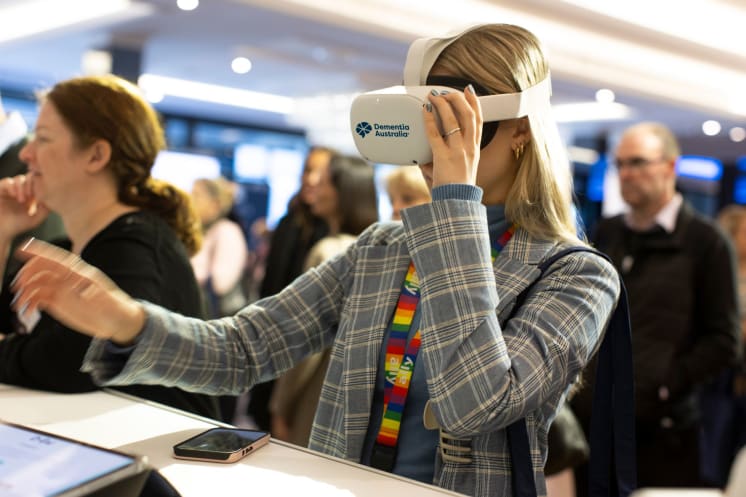Dementia Australia has launched a virtual reality (VR) training program aimed at de-escalating behavioural emergency situations involving people living with dementia in care settings.
The training, titled 'D-Esc', uses immersive simulation for frontline and healthcare staff to help build empathy and understanding towards people living with dementia.
The aim of the training, which was developed with Deakin University's Applied Artificial Intelligence Institute, is to reduce the use of restrictive practices and the number and severity of dangerous incidents in care.
“Behavioural emergencies and occupational violence in aged care are time-critical emergencies,” said Dementia Australia Executive Director Services, Advocacy and Research Dr Kaele Stokes.
"People living with dementia may feel anxious, fearful, distressed, confused. They may also be in pain or disorientated.
“Sometimes the way they are experiencing a situation may mean a person is unable to communicate how they feel or what they are experiencing in the familiar ways.
“Additionally, the way a care worker communicates with people living with dementia is vital. Communication is not just talking.
“Gestures, movement and facial expressions can all convey meaning. Body language and physical contact become significant when speech is difficult for a person with dementia.
“Course participants will build their empathy, increase their understanding of dementia and skills in communication, recognising emotional and physical signs of escalation and how to reduce the risk of harm for both the person with dementia, other residents, visitors and staff."
The 3-hour D-Esc workshops will have up to 15 participants each and are designed for health and aged care workers in residential, home and community care, primary and acute care and disability care. D-Esc is fully funded until 30 June 2025. To find out if your staff are eligible, please visit Dementia Australia's website or contact development@dementia.org.au.










